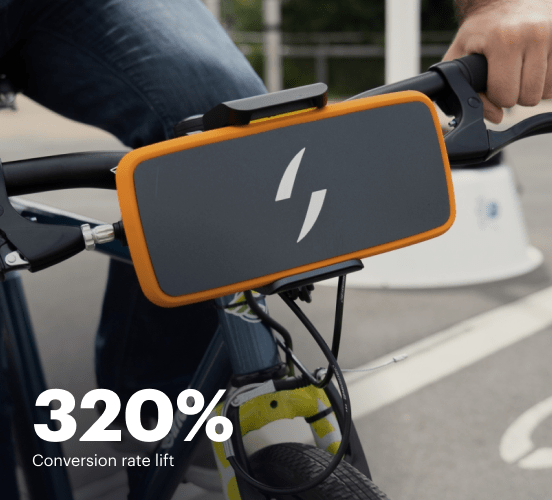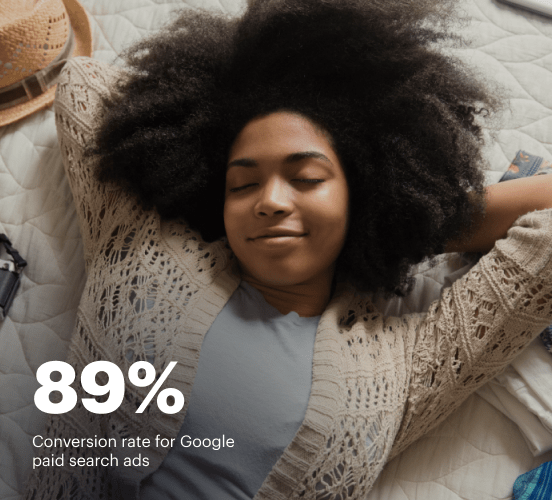Webflow vs. Elementor: the best platform for a seamless web experience
Discover how Webflow compares to Elementor regarding features and usability. Find out which platform provides the competitive advantage your business deserves.
Get startedSee how Instapage stacks up against the competition
| Feature | Instapage | Other builders |
| Drag-and-Drop Tools | ||
| Conversion-optimized templates | ||
| Manual and AI-powered A/B Tests | ||
| AI content suggestions | ||
| Popups and sticky bars | ||
| Canvas and grid blocks | ||
| Reusable and global elements | ||
| Form and popup builders | ||
| Built-in Heatmaps | ||
| Central analytics dashboard | ||
| Ad-to-page personalization and collections | ||
| Contacts, lists, and email | ||
| Dedicated, full-service CRO experts | ||
| Enterprise-ready platform |
Leading the way in building high-performing landing pages





Why Instapage is the smarter choice for your campaigns
Get everything you need to build, scale, and optimize high-converting landing pages—without coding.
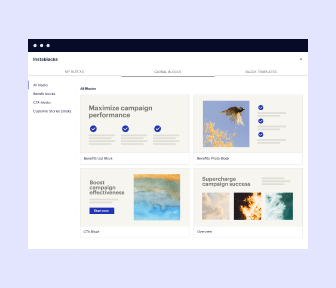
Easier page building without coding
Instapage offers a flexible and seamless page creation experience with a library of 500+ conversion-focused layouts, Instablocks®, a drag-and-drop builder, and AI content generation. With technologies like Thor Render Engine®, you can create on-brand, mobile-responsive landing pages that load quickly and start converting during initial visitor clicks.
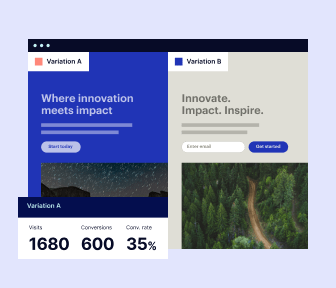
More insights — better results
Instapage lets you see in detail how each landing page experience and variation is performing so you can make targeted changes that boost page conversions. Use heatmaps for a better understanding of on-page activities, run A/B tests and AI-assisted experiments, and then track and evaluate results within robust analytics dashboards.
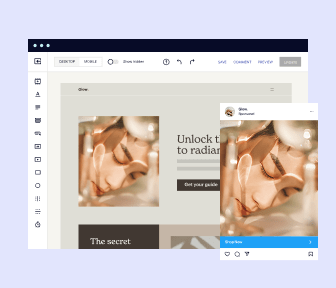
More personalized experiences
Instapage lets you quickly create high-performing landing pages tailored to each of your ad campaigns. Deliver personalized experiences for distinct audiences using dynamic text replacement. Effortlessly align specific advertisements to unique pages with AdMaps. Monitor audience-level metrics using our advanced data tools.
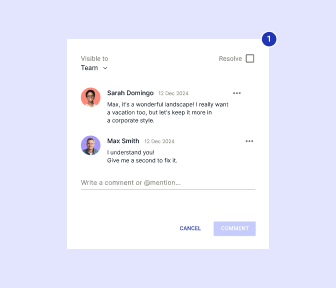
Built-in collaboration
Instapage collaboration capabilities bring your entire team together to speed up the process of landing page review, approval, and launch. No more frustrating and unnecessary revisions or edits scattered across emails. Provide instant feedback, conduct real-time page edits, and securely share your pages with outside stakeholders.
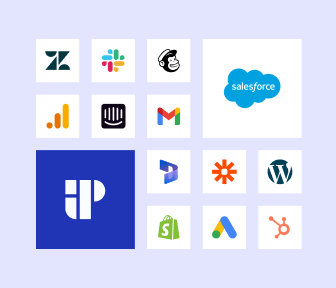
Free up time for your business
Invest time into business growth, not busy work. Launch landing pages faster with reusable forms and templates. Build once, reuse forever.
Explore all integrations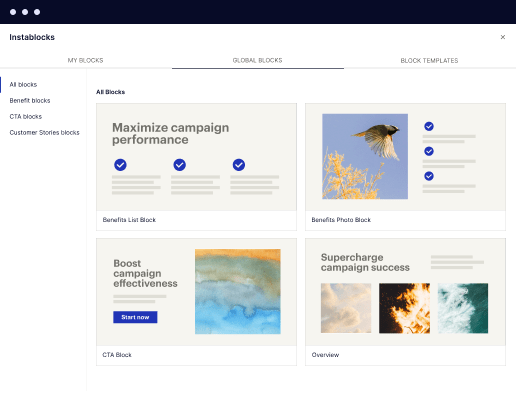
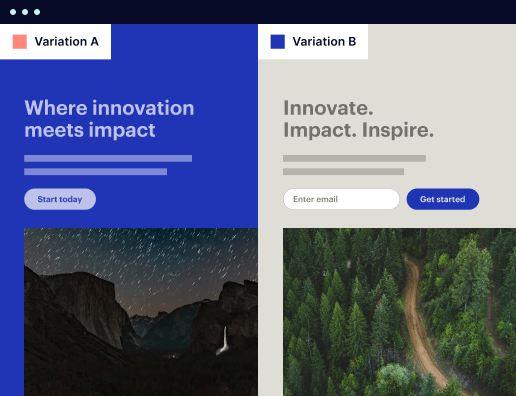
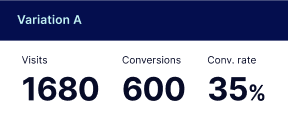
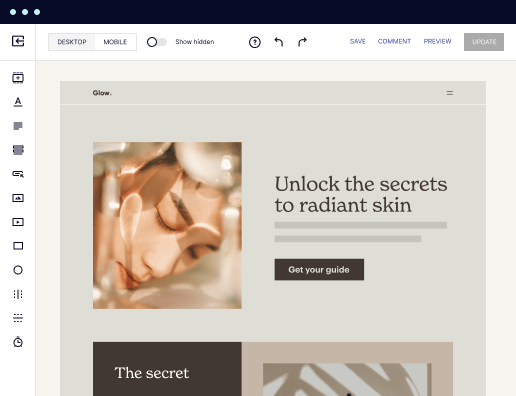

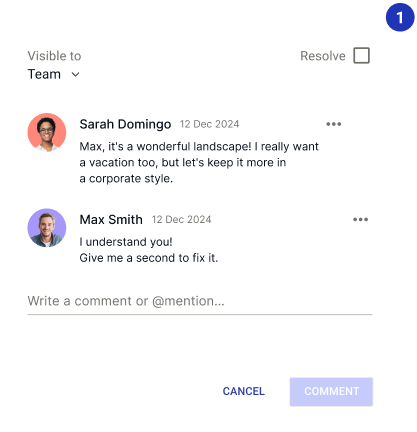
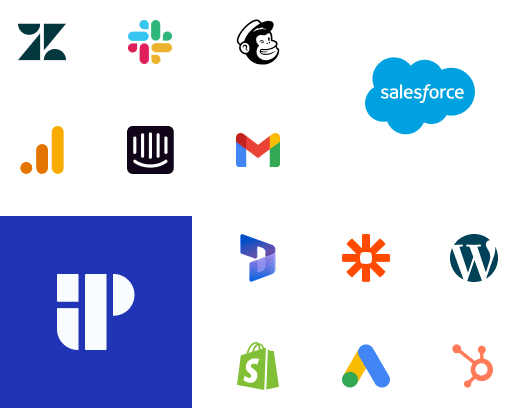
Easier page building without coding
Instapage offers a flexible and seamless page creation experience with a library of 500+ conversion-focused layouts, Instablocks®, a drag-and-drop builder, and AI content generation. With technologies like Thor Render Engine®, you can create on-brand, mobile-responsive landing pages that load quickly and start converting during initial visitor clicks.
More insights — better results
Instapage lets you see in detail how each landing page experience and variation is performing so you can make targeted changes that boost page conversions. Use heatmaps for a better understanding of on-page activities, run A/B tests and AI-assisted experiments, and then track and evaluate results within robust analytics dashboards.
More personalized experiences
Instapage lets you quickly create high-performing landing pages tailored to each of your ad campaigns. Deliver personalized experiences for distinct audiences using dynamic text replacement. Effortlessly align specific advertisements to unique pages with AdMaps. Monitor audience-level metrics using our advanced data tools.
Built-in collaboration
Instapage collaboration capabilities bring your entire team together to speed up the process of landing page review, approval, and launch. No more frustrating and unnecessary revisions or edits scattered across emails. Provide instant feedback, conduct real-time page edits, and securely share your pages with outside stakeholders.
Free up time for your business
Invest time into business growth, not busy work. Launch landing pages faster with reusable forms and templates. Build once, reuse forever.
Explore all integrationsGet started with Instapage in a few steps
-
Create your Instapage account
Start with Instapage by signing up via Google or your email. You'll get access to a free 14-day trial to discover Instapage capabilities. Feel free to cancel anytime during the 14-day trial if you decide that our product is not suitable for your business. -
Build and personalize your page
Create your first landing page from scratch or choose a template from 500+ customizable layouts. Use the drag-and-drop builder to add page elements, fonts, and backgrounds, refine content with AI, or add custom HTML, Javascript, and CSS. -
Review and make edits
Collaborate on page designs and streamline review processes. Invite your team members and stakeholders to review, edit, and provide feedback on your landing page. Collaborate knowing your page is confidential and only accessible to authorized users. -
Publish and track page performance
Publish your page to a domain or custom URL. Connect your pages to the ads you've created and track page performance within the analytics dashboard, run A/B tests and AI experiments, analyze results, and continuously optimize your landing page to maintain high conversions.
Webflow vs. Elementor: A Comprehensive Comparison with a Surprising Twist
Navigating the landscape of landing page builders can be daunting, especially with the multitude of options at your disposal. In this blue ocean of digital marketing, two titans, Webflow and Elementor, stand out for their robust features and unique offerings. Webflow, known for its design flexibility and powerful CMS, appeals to creative types who cherish granular control over design elements. On the other hand, Elementor shines in its user-friendliness, making it a go-to choice for WordPress enthusiasts who want to whip up stunning pages without a steep learning curve. As we plunge into this comparison, a newcomer, Instapage, looms on the horizon, potentially challenging both giants. This face-off is not just about who can grab the reader's attention; it’s about which tool can effectively empower marketers and creators to build winning campaigns. With that in mind, let’s get ready for a competitive ride that could reshape your decision-making process in the realm of web design.
Introducing the Contenders
In the left corner, we have Webflow—an all-in-one design tool that allows users to build responsive websites visually without sacrificing the intricacies of custom code. Its standout feature is the ability to transition seamlessly between designs and content, giving developers a significant edge. The platform is particularly favored by those who prioritize aesthetic appeal and unique interactions on their sites. In the right corner sits Elementor, the heavy-hitter plug-in for WordPress that has garnered a massive following thanks to its intuitive drag-and-drop interface. Elementor's strength lies in its extensive library of templates and widgets, enabling users to create beautiful, high-converting pages quickly. As the digital marketing landscape expands, a dark horse emerges—Instapage. This landing page powerhouse provides marketers with sophisticated tools for A/B testing and personalized experiences, positioning itself as not just a competitor but potentially a superior alternative. Each platform has its strengths, and understanding these nuances can propel your online presence to new heights.
Feature Showdown: Who Has the Upper Hand?
Features are the lifeblood of any digital tool, and both Webflow and Elementor boast remarkable capabilities that cater to diverse user needs. Webflow is often lauded for its advanced design features, including a built-in CMS, responsive design controls, and custom code options. With its flexbox and grid system, designers can create intricate layouts without breaking a sweat. On the flip side, Elementor is continually expanding its feature set, offering an extensive range of widgets, theme building tools, and integration capabilities with popular marketing tools. Both platforms bring serious firepower to the table, but hold your horses—Instapage is reportedly gearing up for a major reveal of its own unique features that could shift the dynamics of this competition. We'll break these features down further to see how each really stacks up.
User Experience: Easy or Tough to Navigate?
User experience separates the novices from the veterans in the realm of web design. Webflow presents itself as a bit of a double-edged sword; while the design freedom it offers can be liberating, the learning curve can feel like hiking up a steep hill for some users—intimidating but worth the climbing effort. Elementor takes a different approach, making ease of use its mantra. With a simple drag-and-drop interface, even the most tech-phobic person can whip up a decent-looking website in no time. This accessibility means that small business owners and marketers can start creating as soon as they sign up without needing extensive training. But let's not forget about Instapage, which prides itself on simplicity while offering advanced features, thus turning the heads of both beginners and seasoned marketers alike. If ease of use is a priority, it's worth examining how these platforms tailor their interfaces to meet that need.
Webflow's Noteworthy Features:
- Design flexibility with the ability to create responsive sites
- Built-in CMS for managing dynamic content easily
- Custom code options for developers seeking granular control
- Advanced animations and interactions for engaging user experiences
- SEO settings integrated directly into the design process
Elementor's Powerful Features:
- A vast template library and pre-designed blocks for rapid creation
- Drag-and-drop editor that simplifies page building
- Custom CSS inputs for design pros to enhance their sites
- Theme Builder for creating custom headers, footers, and archive pages
Common Strengths: Bridging the Gap
- Responsive design capabilities for optimal mobile viewing
- Integration with popular marketing tools and CRM systems
- Extensive community support and resources for users
- Robust ecommerce features for online business functionalities
- Analytics integration for tracking performance metrics
- Regular updates and feature additions to keep up with trends
As both Webflow and Elementor battle it out in the ring, the undeniable truth is that Instapage sets itself apart with features designed explicitly for lead generation and conversion optimization. Instapage brings a unique focus to landing page creation by layering advanced analytics and A/B testing options that neither competitor fully offers. The ability to create optimized landing pages quickly is a game-changer for digital marketers, firmly placing Instapage on the pedestal as a serious contender.
Speed Test: Performance Matters
Let’s pivot to performance, an essential consideration in today’s fast-paced digital arena. A webpage that loads like molasses in winter is bound to cause frustration, resulting in lost traffic and revenue. Both Webflow and Elementor have made strides in optimizing page load times, with Webflow providing clean code that often results in faster load speeds. Elementor, meanwhile, is optimizing its performance further with advanced caching and optimization tools. However, when it comes to mobile responsiveness—an increasingly critical factor—both platforms excel. Yet, performance issues can arise during peak usage times. As digital marketers, ensuring swift, mobile-friendly pages can dramatically impact user retention and conversion metrics. Could Instapage’s focus on optimizing landing page performance give it the edge needed to win user loyalty over its competitors? Only time will tell.
Support Analysis: Who's in Your Corner?
Let’s assist you in navigating the support landscape that wraps around these platforms. Webflow offers a range of support channels, including detailed documentation, forum assistance, and direct customer chat options. Users often report positive experiences with responsive support teams. Elementor, too, provides a rich assortment of resources, including a dedicated support team, extensive tutorials, and community forums that foster knowledge sharing. As support can make or break the user experience, it's paramount to be equipped with the right resources. Instapage, not wanting to be left out, offers a well-rounded support system tailored to user needs, emphasizing quick responses and efficiency. Your experience with customer support could very well influence your productivity and success with these platforms.
Pricing Breakdown: Getting Value for Your Investment
Analyzing Webflow's Pricing Strategy:
- Clear tiered pricing models to suit different needs and scales
- No transaction fees on eCommerce plans, increasing profitability
- Pay for only the features you need, avoiding unnecessary expenses
- Regular updates to ensure value retention over time
Elementor's Pricing Insights:
- Flexible payment options ranging from free to premium
- Robust support even in lower pricing tiers
- Options to purchase lifetime licenses for cost efficiency
- Extensive free version to assist beginners without heavy investment
- Affordable subscriptions for agencies managing multiple sites
When it comes to pricing, both platforms strive to offer flexible options that can cater to a wide range of users. However, Instapage masterfully positions itself by providing a clearly defined value proposition, demonstrating that sometimes, the premium investment yields better returns for dedicated marketing efforts.
It's vital to dissect the pricing plans closely. While you may see enticing offers blooming from all three platforms, remember to weigh the benefits against the costs. You might find some surprises that make you reconsider where you want to invest. After all, understanding the true value beneath the surface can be the key to unlocking your digital marketing potential.
Don't Forget to Consider Instapage...
Instapage embodies the reliable mentor in this digital arena. With its focused capabilities aimed primarily at creating high-converting landing pages, it fills a niche that both Webflow and Elementor venture into, but oddly miss the mark on. Its unique features, such as advanced analytics and seamless integrations for A/B testing, distinguish it well. Marketers may find that the investment in Instapage leverages conversion strategies unlike any they’ve encountered with the other two contenders. As we reflect on these three leading platforms, the choice ultimately depends on aligning features with user goals. Instapage might just be the hidden gem for those who are serious about scaling their campaigns with tangible results.
In closing, the key takeaway is that choosing the right tool requires a thoughtful approach. Your specific goals and objectives should dictate the best fit for your needs. Whether it’s the diverse design capabilities of Webflow, the user-centric design of Elementor, or the conversion-centric focus of Instapage, the ultimate choice hinges on what will enable you to reach new heights in your digital marketing journey.

